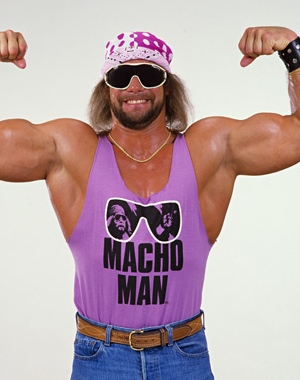
My father doesn't understand the Internet. Writing a single email can take him an hour or more. When I talk to him about how I'm finding work (and getting paid) on the Internet, he is dumbfounded.
In my father's world, you go to a place of employment, you fill out an application, and you wait to hear from a manager. In my father's world, you go to a physical place, called "the office," and work for the greater part of the day. Then you come home, eat dinner, perhaps read a book or watch TV, and go to bed.
Suffice it to say we are not living in the same world.
The collapse of the current economy is my father's world. We will look back on this pre-global economy, how banks used to work, how governments ran, how corporations churned out cash, how medical insurance was dispensed or not dispensed, and wonder how it all hung together for so long.
After this crisis is over--if our economy is to regenerate and be given a second life--I believe we will see a new model of business rise up from the ashes of the old economy.
A decentralized model. A global model. A democratic model. A model based on social technology.
Corporate capitalism will still be there. But it will exist alongside its younger sibling like a warty inmate imprisoned inside its own structure.
Collective intelligence will provide the counterpoint to ego-driven profit-mongering. Because collective intelligence promises a dissemination of knowledge, a sense of connection with the greater community, and a spirit of creativity and invention. Most of the things that, ironically, corporations lack.
We will be motivated to share our knowledge and combine our skills more than we will be motivated to make a quick buck. We will come to see the benefits of helping a community, rather than destroying it.
The current crisis was brought on by a profound lack of collective intelligence in major sectors of the economy. Banks were blindsided by investment firms; investment firms were blindsided by corporations; and the US government was blindsided by all of them.
Alliances were formed on the basis of self-interest. Each sector was only looking out for itself. This is the rot of corporate economics, bending the rules to make more money for one institution and not another. The system was rigged toward personal gain.

Social Technology Means Something Different
How will this change? How can this change?
Social technology is not based on personal gain. Social technology is about connection and sharing.
Social technology is a new way of relating to each other. But in contrast to the "exchange" of my father's world, which is quid pro quo, social technology is a macro-level exchange that regulates itself.
Knowledge is free. Wikipedia is created by hundreds of thousands of people. When you search for a term in Wikipedia, you do not "see" the exchange. People have done the work to aggregate and synthesize the data for you. Therefore, exchange occurs on the macro-level, not on the micro-level as it was done before. Social technology is a free exchange of resources and information.
For some reason, I want to help others succeed in this new economic model. Why? I don't even know who I'm helping. Most likely these global citizens don't live in my city or country. I've never met them before, but I want to connect with them for some reason. The greater good is not an abstract concept anymore. It is a global democratic economy in action.
In this new world, resources are not limited; they are abundant. Jobs are not few; they are many. Ideas are not exchanged between people in a room; they are exchanged between whole populations.

Here are some examples of how social technology is transforming our world.
1. My professional blog is my storefront.
People who are interested in my SEO services can read about what I am doing on a weekly basis. They can find out about my clients. They can investigate my business. They can learn about my background and decide if my services match their goals.
How is this social technology?
Without a bricks-and-mortar building to sell my wares, I can conduct business with vastly diminished overhead costs. With fewer overhead costs, I can base my services in communication. In fact, my business revolves around social communication. My professional blog gives away "free knowledge". And my advertising is built into my product.
2. Higher Education needs to be re-examined. Self-education is key.
I don't believe in higher education. I would say it is little short of a scam. Look at all the people who have degrees and can't find jobs. Wasn't that the reason why they got the degrees in the first place?
And what about those who took out loans? Like my girlfriend who has the emotional and financial burden of over $100,000 in debt.
After devoting yourself to a specialized field for X number of years, you graduate learning there are only certain jobs you qualify for. The other jobs require different degrees.
Who came up with this system? The reality is most people change their jobs seven times before they are 35 years old.
The Internet and social technology will eventually make higher education obsolete. We are beginning to see the tears in the fabric already.
In a fluid, global economy, self-education means that the people learn technical skills from the knowledge available to them. And their merit is determined not by institutional certificates but by their work performed. Knowledge resists institutionalization. Eventually, it will be that you miss out on an education by going to school.

3. Experts are available on the Internet.
In my father's world, you had to pay to get information. In my father's world, you needed a degree to gain "knowledge". In my father's world, you needed money to make money.
In my world, information and knowledge are free. Not only that but information flows down infinite channels.
One of the most innovative social technologies is Yahoo! Answers. At first glance, the service may seem banal. But when you step back and think of the implications of this interface, it is truly profound. On Yahoo! Answers you ask a question to the online public. For each question you ask, it costs one point. You are given 100 points to begin with. After you ask the question, you wait for a message in your mail box alerting you that someone has answered your question.
You can accrue points by answering questions. I was so delighted to use this social technology the other day that immediately after asking a question, I wanted to answer one. There is a feed on the main page with all the questions being asked in real-time. You can pick one and answer it, providing you know the answer.
One girl wanted to know if she should quit her restaurant manager position that is paying her $50,000 a year but killing her in the process. I wrote back, "Quit your job and find something that deeply fulfills you. If you are doing what you love, the money will follow."
The question I needed to ask was technical. But answers are answers. If someone is in a pickle and needs help, it doesn't matter if the question is technical, philosophical, or emotional. The answer can make a difference.
Why am I so thrilled about Yahoo! Answers? The service allowed me to find several answers to my question from different people and it put me into contact with an expert.
Yahoo! Answers, like Wikipedia, demonstrates the power of collective intelligence.
And there are other ways to find experts on the web. With the proliferation of blogs, you can find an expert on any topic, sub-topic, or sub-sub-topic. Bloggers will want to share their knowledge with you because they are passionate about the information.
I've had lots of success with contacting people through their blogs. Not once have I been denied the answer to my question.

4. Contract bid sites such as Elance.com can provide you with a significant source of income.
Elance.com is a site for freelancers of every feather--called providers--and employers--called buyers--looking for virtual labor. Before you can search for jobs, you have to take an initial test about the site itself. You then set up a profile and buy credits based on your chosen field. Twenty credits costs about ten dollars. Each bid can cost between one and four credits, depending on the length of the project. To make a bid, you write a proposal.
You can look at the buyer's information and see their track record; how much money they spent on Elance and what other providers say about them. This transparency aids in the process of knowing which bids to go for and which to avoid.
The real gem of Elance is its popularity. There are fresh jobs constantly. While a major complaint is that the bidding system allows the buyers an advantage over providers, you will also find a wide range of buyers with a wide range of budgets. I'm working for an SEO company in San Francisco and being paid reasonably to write and syndicate press releases. The more jobs I'm awarded on Elance, the more I'm able to solidify my reputation and gain a competitive price from my work.
Why is this social technology?
Individuals are sorted and matched according to a system of needs. I can provide a skill to someone on the other side of the world, which opens up my job market exponentially. A buyer can find higher quality work for cheaper by not having to go through the monopoly of corporate providers.
What is the result? Big business is being undercut. Small businesses and entrepreneurs are able to thrive. Recently I talked with a major SEO company in Chicago. I wanted to know if they were hiring. The person who answered the phone said they were not. "Have you noticed the economy isn't doing so well?" he said. "Well, advertising budgets are the first to go."
"I have a different theory," I said. "I think the economy is in major transition. I provide SEO services and haven't found any lack of opportunities. I think it's your position as a large company that's hurting."
Elance is the future of the workplace. Everyone outsources everyone else. Everyone works from home.
Big corporations will crumble under the collective force of millions.
Conclusion
Okay, I'm not so naive to actually think that corporations will become extinct anytime soon. But I'm excited about a global democratic economy that is emerging and that is helping me from being poor. After the despair of my father's world passes, we will wake up to what we can do with technology and collective intelligence .
Some of the possibilities are already beginning to dawn on us.
ARTWORK BY CHRIS JOHANSON



















